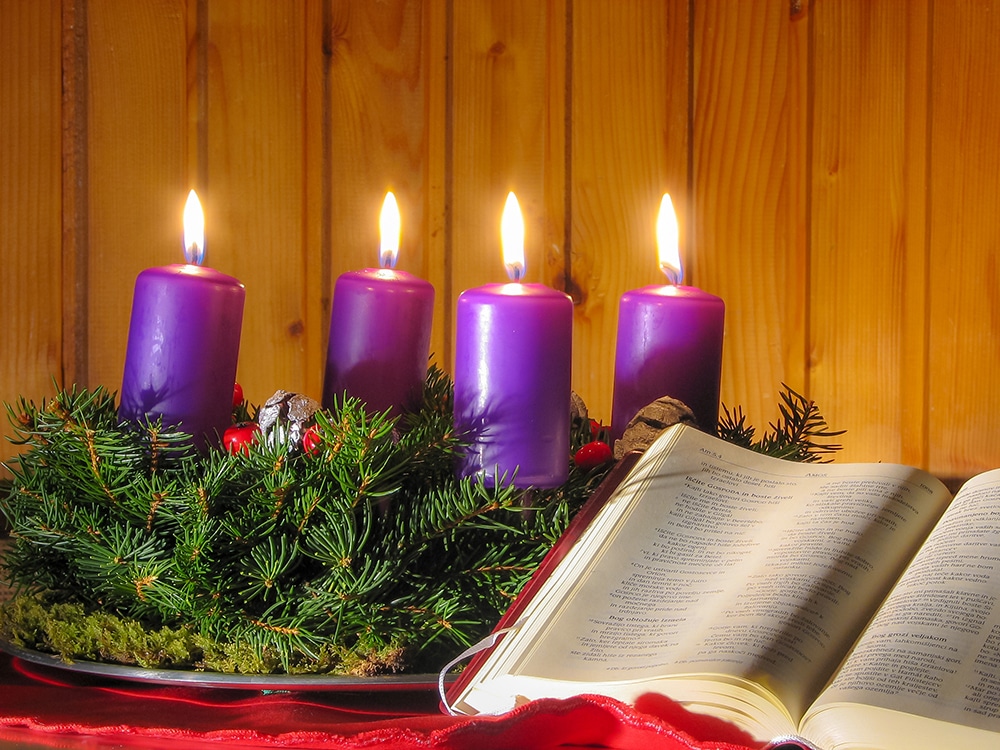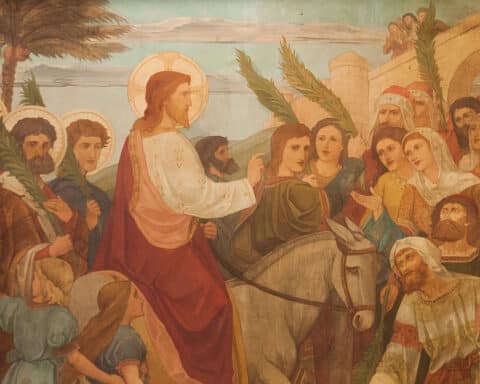
And yet, on this Fourth Sunday of Advent, the Church turns her attention to the poverty of a God who became flesh in the womb of the Blessed Mother. In this poverty, in this manifestation of self-emptying love, we come to know what it means to say the word “God” in the first place.
David’s longing to construct a temple for God is a double-edged sword.
On the one hand, David longs for God to have a worthy dwelling, to adore the God who has given all things to Israel as a gift. This temple will be the place of sacrifice to this God in which all citizens of Israel will come to bend a knee.
| December 20 – Fourth Sunday of Advent |
|---|
|
2 Sm 7:1-5, 8-12, 14, 16
Ps 89:2-3, 4-5, 27, 29
Rom 16:25-27
Lk 1:26-28
|
On the other hand, the construction of the Temple is also an act of forgetfulness on the part of David. As king, he imagines himself to be the grand caretaker of God’s power. God’s question to David should shake him to his core, “‘Should you build me a house to dwell in?'” (2 Sm 7:5).
This is the God who has revealed his power, not through the mortar and stone of a temple complex. Rather, this is the God whose power comes from the generosity of divine love. The God who created the world, who called Abraham, who heard the cries of his people suffering in Egypt and liberated them, and who gave the Law. All are of these as acts of love.
David has forgotten who the God of Israel is. And therefore, he seeks to construct an idol for this God, one closely linked to his own power as king of Israel.
God turns David’s desire upside down. Indeed, it is not God who will get a house from David. God will ensure that David’s lineage will never be forgotten. Not because David built a glorious Temple for all to behold. But because God has chosen this people out of love.
In this encounter between the angel Gabriel and the Blessed Virgin Mary, this house is at last built. It is not a grand structure, in which all nations of the world will bestow homage. Rather, the house is built through a surprising conception of a poor child bestowed to an unknown woman in the otherwise forgettable land of Galilee.
The temple that David was waiting for, even if he did not realize it, has come into existence. It is Jesus, albeit hidden, dwelling in the womb of his mother.
The glorious poverty of a God, who loved us so much, that he became one of us.
The wondrous commitment of a God, who came into the world hidden from the sight of all the powerful, visible only to the forgotten.
In these closing days of Advent, as we prepare to welcome the Christ Child, let us learn from David’s folly.
In this strangest of Christmases, celebrated in COVID-tide, the power of God is not made manifest exclusively through huge family gatherings or elaborate midnight Masses.
This God of ours, the God we dare to worship as Jesus Christ, manifested himself in the womb of a Virgin, hidden from the sight of the world.
And this God, the Word made flesh, still dwells among us.
In the silence of a rather unspectacular Christmas, in the least festive of supposed festive seasons, the poverty of God is there for us to see.
And, if we dare, to imitate.
Timothy P. O’Malley, Ph.D., is the director of education at the McGrath Institute for Church Life at the University of Notre Dame.





